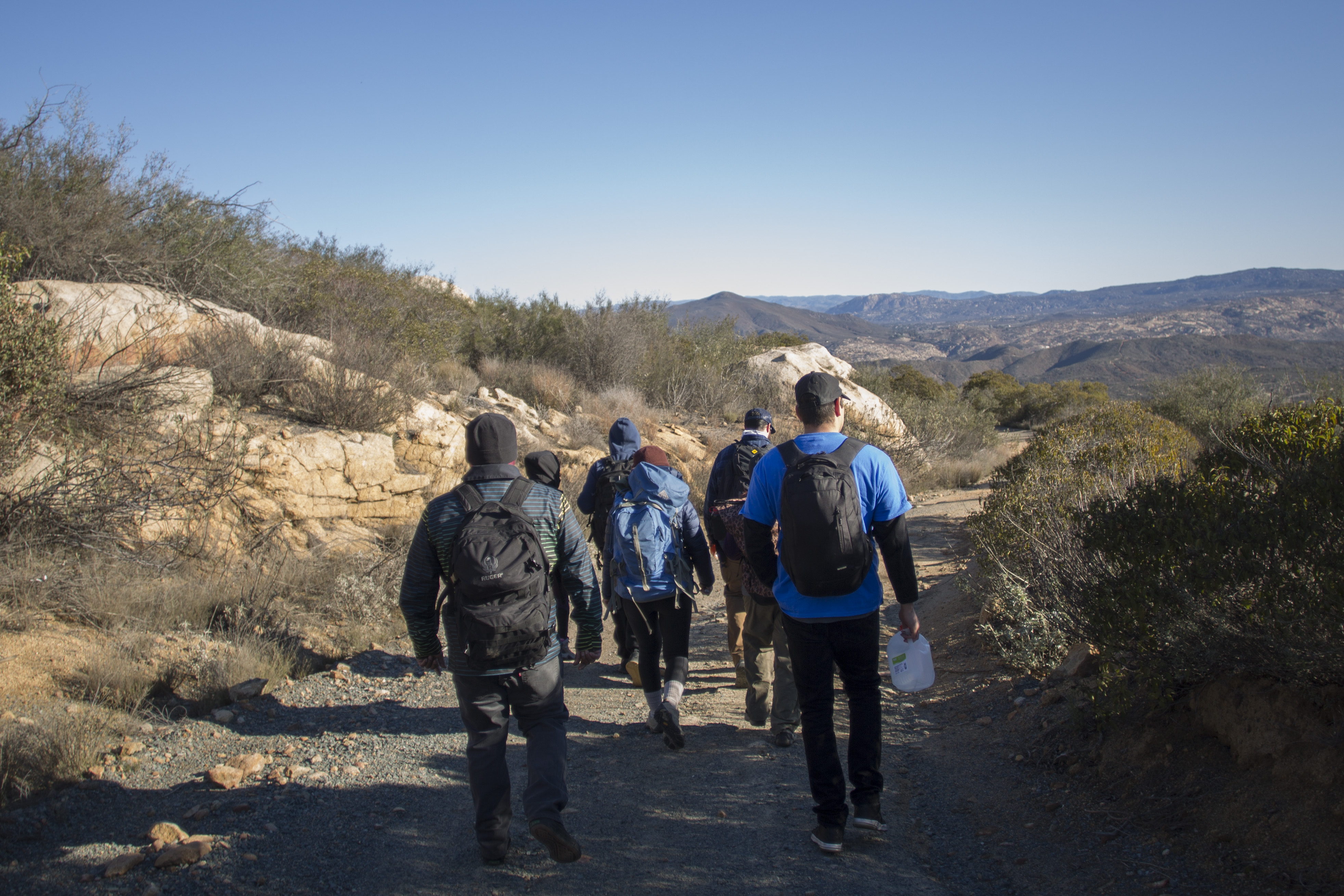
Photo: GUILLERMO ARIAS / AFP / Getty Images
The Department of Homeland Security (DHS) announced Wednesday that it will undertake a new series of actions to increase surveillance on the southwest border of the United States that borders Mexico.
Among the actions announced in a fact sheet are the acceleration of the work authorization process and the decision to redesignate and extend the Temporary Protected Status (TPS) for Venezuela.
In consultation with interagency partners and with careful consideration of the conditions, and due to the extraordinary and temporary conditions in Venezuela that prevent people from safely returning, Secretary of Homeland Security Alejandro Mayorkas decided to extend and redesignate TPS for Venezuela.

Although President Biden has called on Congress to pass comprehensive immigration reform, due to Congress’ failure to enact such reform, the Administration has been using the tools available to secure the border and build a safe, orderly and humane immigration system, while moves forward with the largest expansion of legal avenues for immigration in decades, in the absence of a new code of immigration laws that reflects the current situation in the United States.
Strengthen the fight against human and drug trafficking
DHS Continues Stepping Up Fight Against Human and Narcotics Smuggling and the Administration is prosecuting an increasing number of smugglers, as well as non-citizens who violate our laws.

From April 2022 to September 12, 2023, CBP and HSI arrested nearly 17,000 suspected human traffickers and seized more than $51 million in property and nearly $13 million in currency. This has resulted in more than 2,000 indictments and more than 1,500 convictions in collaboration with US prosecutors.
The Department of Justice (DOJ) is aggressively prosecuting those who bring, harbor or transport immigrants illegally, as well as thousands of cases of re-entry into the US of people with serious crimes.
Increase in military personnel assigned to defend the border
The Department of Defense is providing additional military personnelin addition to the 2,500 permanent National Guard troops, to support the Department of Homeland Security (DHS).
This additional support includes up to 800 new active-duty personnel to allow more Customs and Border Protection (CBP) agents and officers to return to their core mission and responsibilities.
Accelerate deportations of families across the country
DHS has expanded the Family Expedited Removal Management (FERM) program nationwide, so families without a legal basis to remain can be quickly removed.
Under this program, families are subjected to express deportation procedures that will be carried out within 30 days. This program launched in May and has processed more than 1,600 families and will continue to expand significantly.
Expand DHS Holding and Processing Capacity
DHS has expanded its capacity to house an additional 3,250 people at its facilities, bringing it to a capacity of nearly 23,000 for CBP.
This is in addition to several thousand expansions at CBP and ICE facilities implemented before May to process, detain and expel more noncitizens who have no legal basis to remain in the United States.
Since May 12, DHS has processed 110,000 people for expedited deportation and has completed an average of 4,000 credible fear cases per week, double the previously recorded high.
Collaboration with other countries to accelerate expulsions and returns
DHS has expelled or returned more families in the last 4 months than in any previous full fiscal year.
Since May 12, DHS has expelled or returned more than 253,000 people to 152 countries, a notable increase compared to 180,000 during the same period in 2019.
This includes: 36,000 family members found at the southwest border and more than 17,000 non-Mexicans in Mexico – a critical deterrent, especially for countries that are difficult to return to, and the first time that Mexico has accepted a substantial number of repatriations to third countries.
Improvements in the processing of work authorizations
Only Congress can change current law to allow asylum seekers to obtain work authorization sooner than six months after submitting their application.
Among the Administration’s new actions is that beginning October 1, USCIS will expedite the processing of Employment Authorization Document (EAD) applications submitted by parolees who scheduled an appointment through CBP One, who, unlike asylum seekers, can apply for work authorization immediately.
USCIS will dedicate additional staff and implement improvements to reduce the average processing time for these requests from 90 days to 30 days.
USCIS will also work to reduce average processing times for EAD applications associated with the parole processes of Cuba, Haiti, Nicaragua, and Venezuela to 30 days and increase the maximum validity period for initial and renewal EADs to 5 years. for certain non-citizens.
Keep reading:
– The Department of Defense announces the sending of 800 more soldiers to prevent the crossing of illegals on the border with Mexico
– USCIS extends work permit validity to 5 years for 6 types of immigrants
– The US government will give work permits to almost half a million undocumented Venezuelan immigrants